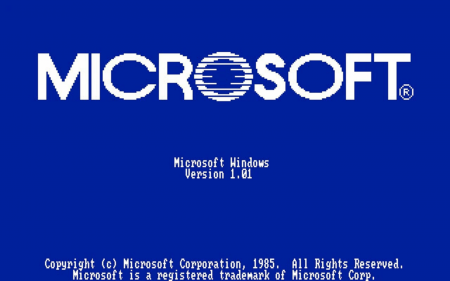Deciding what to call your website and securing the domain name is the first step in your journey to having an online presence. Your next step is to choose a company to do the hosting for your website.
In simple terms, hosting means “where your website’s files are stored”. When people type your website’s name into their browser, the query is resolved by the internet’s Domain Name Service protocol and converted from words into an IP address. That IP address is the internet address of the server that’s hosting your website, and whatever is located at that IP address is what is rendered in their browser.
When it comes to choosing the hosting service that’s right for you comes down to the following:
- How much the hosting will cost you every month (and what you’re prepared to spend)
- How much bandwidth the provider allows to and from your website before traffic is limited
- How protected your website is from things like Distributed Denial of Service Attacks, SQL injections, cross-site scripting, malware infections, and other internet shenanigans.
- Where the servers are hosted (some companies must use in-country servers, others require GDPR compliance)
- How reliable is the service, i.e. what is their uptime guarantee?
- Whether the service is just hosting or if it offers site-building functionality as well.
Most big-name services offer unlimited bandwidth to and from your website, with a fair usage policy in place that will only kick in and limit that bandwidth if your website traffic is unreasonably high.
If you Google them, you’ll find that there are plenty of website building/hosting services out there. Here are five options for you to consider.
Squarespace
Website: http://www.squarespace.com
Squarespace offers ample web hosting solutions with easy-to-use website builder tools, customisable templates, and reliable infrastructure. It provides a user-friendly interface, responsive designs, e-commerce capabilities, SEO features, and 24/7 customer support for creating and managing all kinds of websites from business sites to blogs about cats.
Squarespace is easy to use and great for putting small business websites together quickly, plus it can handle any kind of site from a small personal one to a full-blown ecommerce website. When it comes to pricing, you’re looking at R290 – R890 per month when paid annually, and R420 -R1180 per month when paid monthly.
If you’re intrigued but not sure about Squarespace, they offer a free 14-day trial so you can try before you buy.
Squarespace is great for:
- Individuals;
- Creative professionals;
- And small businesses seeking visually appealing, modern, and professional website designs.
Google Sites
Website: https://domains.google/get-started/website-design/google-sites/
If you’re wondering what Google offers when it comes to hosting and drag-and-drop website building, Google Sites is it. Every person with a Google account can use Google Sites, and it lets anyone put simple websites together very quickly.
It’s great for basic websites, but it’s quite limited when it comes to what you can build with it. On the other hand, there are no bandwidth limits and it runs on Google’s infrastructure, so expect excellent uptime and reliability.
Google Sites is free for everyone with a Google account, and you get the same service if you subscribe to Google Workspace (from $5.40 per user per month). The only significant difference between the two is you also have access to troubleshooting and support if you’re a Google Workspace subscriber.
Ultimately, Google Sites is good for very basic websites. If you have a need for ecommerce functions, or even the ability to add a blog, you should look elsewhere.
Google Sites works best for:
- Anyone that needs a very simple, affordable, and user-friendly way to make basic websites.
Hostinger
Website: http://www.hostinger.com
Hostinger is a hosting service based in Lithuania that offers affordable hosting plans starting at around R40 per month. Despite the very low pricing, all of their subscription tiers offer unlimited bandwidth, 99.9% uptime, 24/7 customer support, and a 30-day money-back guarantee.
Where they differ is in the list of supported features. If you want to build an ecommerce website with Hostinger, you won’t be using the Single hosting plan, for example, as it doesn’t offer the kind of security and support for payment systems that the higher-tier ones do. To check out Hostinger’s four web-hosting subscription tiers, click here.
Hostinger is best suited for:
- Budget-conscious individuals
- Small businesses
Dreamhost
Website: http://www.dreamhost.com
Dreamhost is a reliable hosting provider that offers shared hosting plans starting at around R50 per month. They provide unlimited bandwidth, a free domain name, and every package comes bundled with a WordPress installation, making them a fantastic option if you are building with WordPress.
Dreamhost guarantees uptime of 99.98%, which is a bit more than most providers do, and they’re based in the US. They are so confident in their services that they offer a 97-day money-back guarantee. To take a look at their hosting plans, click here.
Dreamhost is good for:
- Small to medium enterprises
- Entrepreneurs seeking reliable and scalable hosting solutions
- WordPress blogs and websites
Xneelo
Website: http://www.xneelo.com
Xneelo is a South African web-hosting service that also lets you do everything from registering your domain to hosting your website to building your website using their Sitebuilder function.
Their web hosting services are nicely priced, with packages going from R99 per month to R439 per month that vary the amount of storage you get for your site and the number of databases you can connect, etc. To get access to their Sitebuilder, it’s another R39 per month (for SiteBuilder Lite) or R89 (for SiteBuilder Standard).
Xneelo offers 99.9% uptime, unlimited bandwidth to your websites, and a free daily backup that means if your site ever goes down, the most you’ll lose is 24 hours of data. To see what each of their plans cost, click here.
Xneelo is best for:
- South Africa-based individuals and businesses
- Businesses looking to target the South African market
Ask around
As always, we encourage you to talk to your IT people or other business owners/entrepreneurs to hear from others what their thoughts on hosting options are. The above are just five examples of the companies that are out there, and what you can expect to find.
Image by Mohamed Hassan from Pixabay.




